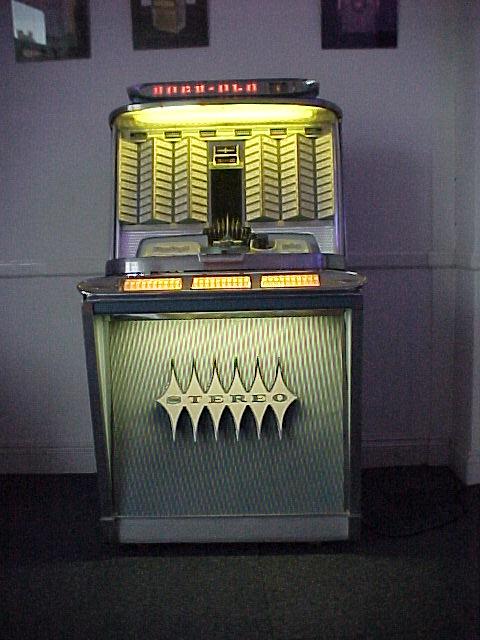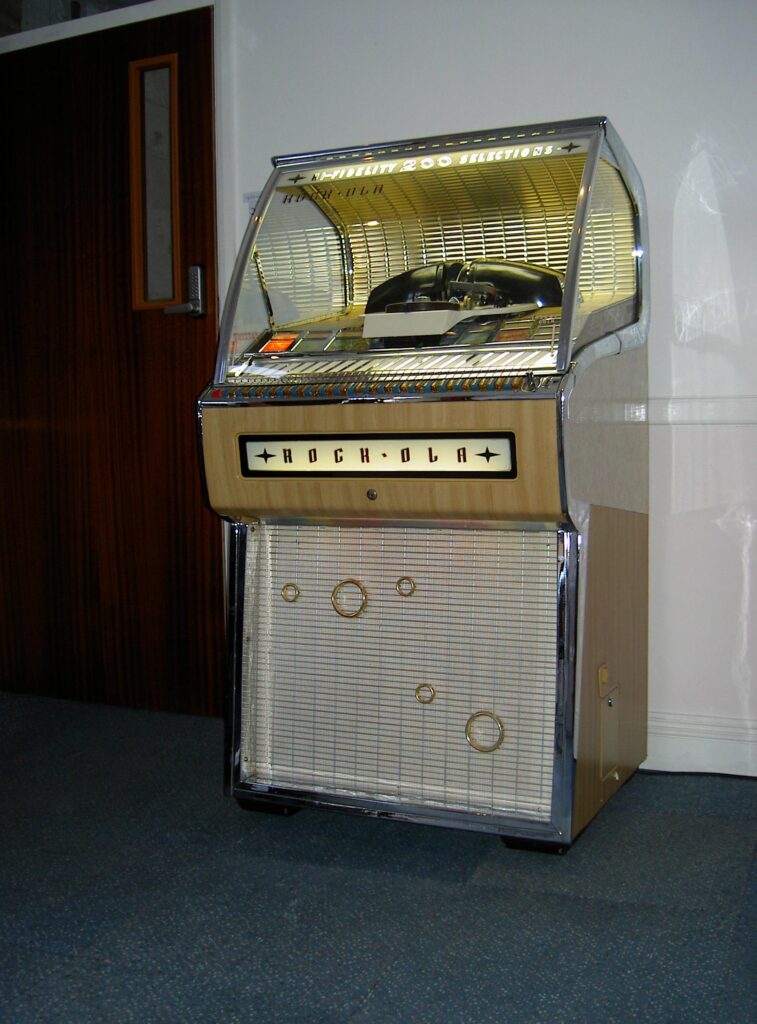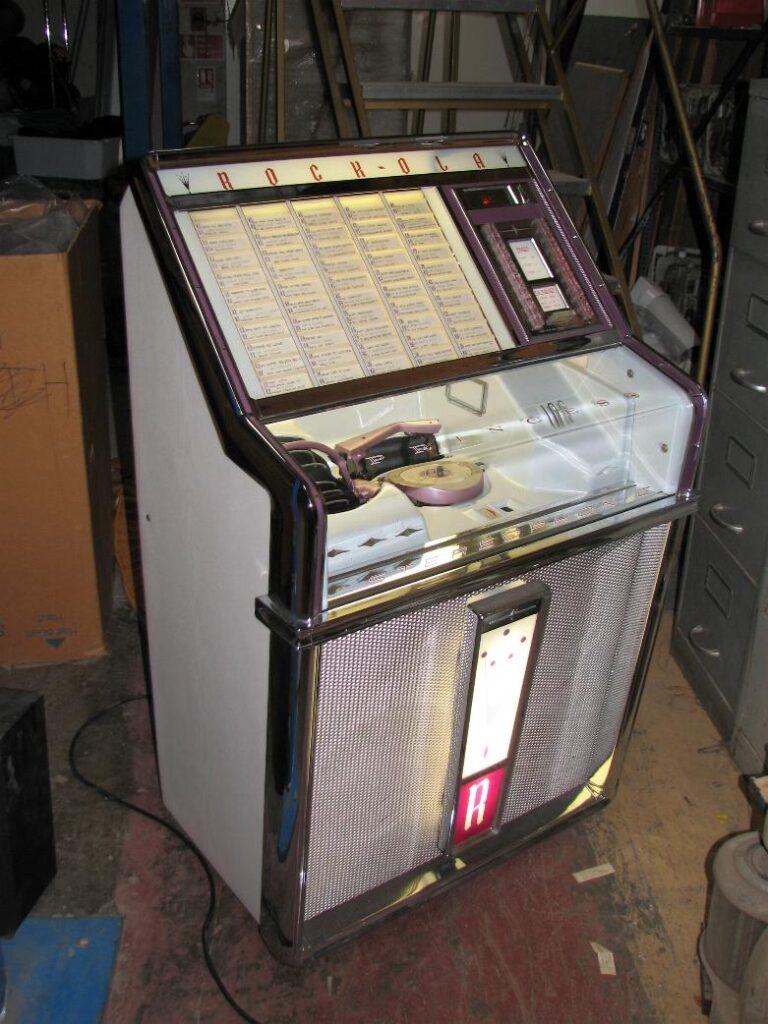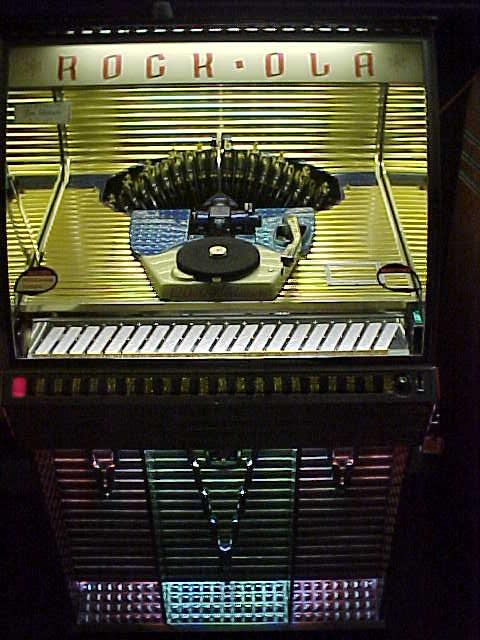You’d think the name has something to do with Rock and Roll, the jukebox manufacturer Rock-Ola is in fact named after its founder David C Rockola. However Rockola didn’t start in jukeboxes right away. He started off as a mechanic in a vending machine factory at the tender age of 14, after quitting school early. The practical and technical skills he learnt would give him a strong base to build on later in life.

At the age of 23 David Rockola moved from his home of Manitoba, Canada to the USA. With two partners he started a small dealership in coin-operated weighing machines, a company which grew quickly. David was a quick learner and soon launched his own company – the Rock-Ola Scale Company. Pinball machines became big business in the early thirties and Rockola, seeing the success that some of his weighing scales clients had with the games started his own version. ‘Juggleball’ somehow never really took off. Whether that was because of the game itself or the economic recession that swept the States, Rockola found himself in serious debt. The company’s backers recalled the money they had invested. In a masterpiece of negotiation Rockola managed to persuade his backers that if they claimed back their money now the company would close and they would only see a very small percentage of their original investment. However he assured them that if they gave him time he would make the company a success and pay them back every cent. In the next three years the Rock-Ola company worked hard and restructured. They were now successfully selling coin-operated games, and Rockola paid back his investors.

Following a move to California in 1934 Rockola started to move his company in the direction of coin-operated music machines. Having met an inventor named Smythe, who had created a record selection mechanism, Rockola bought the patent and went into jukebox production. The model A, introduced in January 1935, was the Rock-Ola company’s first twelve-selection jukebox. Some work on the mechanism increased the selection to twenty by 1937, but this was a number they wouldn’t improve on until 1950.

Rock-Ola’s design ethic was a large contributing factor to their success. Led by David Kochole, who designed a large number for beautiful jukeboxes, Rock-Ola always managed to stay in touch with the current zeitgeist and design their cabinets accordingly. As with all jukebox companies of the time the introduction of plastics revolutionised the look of Rock-Ola’s machines. In the late thirties and early forties their jukeboxes were luxury light up models, covered with marbellised plastics and coloured lighting effects. Despite the rationing of metals and plastics during the war, Rock-Ola were able to come up with some of their most unusual and interesting designs – the ‘tone column’ series. Essentially a tone chamber with an upwards pointing speaker these tall cabinets are now quite rare and highly sought after – the Spectravox, President and Commando models.
However, it was in the fifties when Rock-Ola’s design really hit its stride. Now using the latest technology to allow as many record selections as possible, the Tempo series in particular stands out as cabinets that defined the teenage dreams of the time. Heavily referencing the automobile culture of the time, the Tempo had curved glass screens and a pseudo Cadillac ‘V’ grille on the front.

Rock-Ola’s success could perhaps be attributed to the drive of David Rockola himself and his success in a competitive industry was galvanised by the pressure put on him by his rival companies. As a late entrant into the world of jukebox production, Rock-Ola came across a great deal of hostility from their main rivals – Seeburg and Wurlitzer. Eventually these two companies decided to approach him together. Meeting with Seeburg’s Homer Capehart and Farny Wurlitzer, Rockola was told that the jukebox market was saturated, and there was no room for his company.

It was politely pointed out that Rockola could continue to be successful in the coin-op games market. As you can imagine this ‘discussion’ turned into a full-blown argument, until finally Rockola, furious, cried: “Gentlemen, you asked to see me. Now you are telling me how to run my company. We have nothing further to say to each other!” And he showed them the door. Now Rockola wanted to succeed in the jukebox industry more than ever. In the end it was a combination of technological know-how and up-to-date design that made the Rock-Ola company a success, even through the relatively hard times of the seventies, a time turning its back on materialism. Rock-Ola weathered the storm.